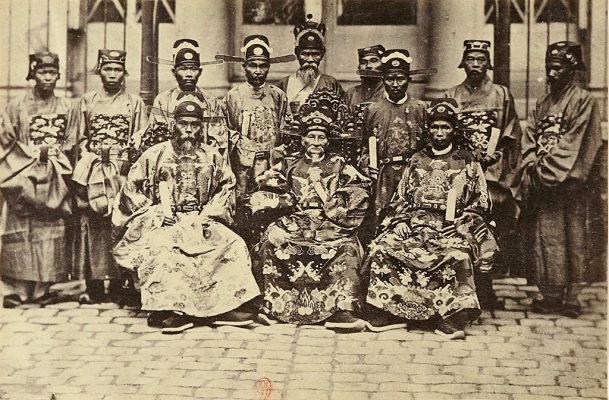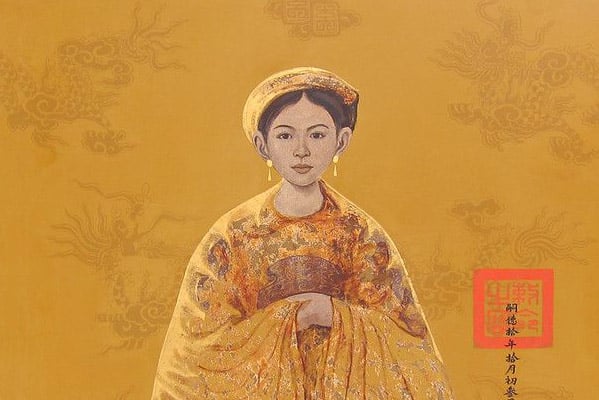Uncategorized
Family and Country
Therapeutic Hypnosis for Healing Family and Work Relationships
He is mature and composed, working in a government agency. His marriage has gone through multiple ups and downs due to their incompatible personalities, even though they originally came together out of love. His wife feels a lot of pressure and suffocation when she is around him, so she decided to distance herself. At first, she felt relieved being apart, but after a while, she wanted to come back. However, by this time, he had grown weary and no longer felt love or any emotional connection with her. He only cared for her as a human being would care for another. Still, seeing her breakdown, he couldn’t bear to leave her.
During this time of family turmoil, he still performed well at work, but he no longer felt passionate about participating in social activities with colleagues like before. Then one day, he discovered that his “absence” had become the topic of conversation among those present in these gatherings, which made him withdraw even further, feeling disconnected from his work environment.
Here are two of the questions he asked when he came to see me:
-
What should he do in his relationship with his wife: Should he make a definitive decision or try to reconcile?
-
Should he change his job?
-
Additionally, he believes he has a strong connection with Buddhism and wishes to meet a spiritual teacher.
THIS IS A LONG AND VERY INTERESTING STORY
First, he saw himself in the world of gods. He was a young man in his 20s, moving lightly as if floating in a Greek-style temple. His hair was curly, and he wore a white off-shoulder robe, holding a small book in his hand, with a calm expression. The scene resembled a royal court session, with a crowd neatly arranged in two rows, busy debating but maintaining order. A young boy, around 6 or 7 years old, glowing brightly, entered the hall and made his way to the throne at the top. When seated on the throne, the boy suddenly transformed into a tall, radiant, translucent figure, exuding an imposing presence. He was the only one with such a body in the entire crowd. The man seemed to be the secretary, taking notes on the proceedings.
Then, he saw himself kneeling before this important figure, as if receiving a command, even though no words were exchanged between them. He accepted this calmly, without joy or sadness. It felt like a job transition. Then he flew on a cloud, soaring endlessly, seeing villages, houses, and fields below, all bathed in green grass and trees.

VIETNAM, A CERTAIN TIME
He was standing in a relatively wide courtyard, in front of a dark wooden house with Eastern architecture, and there was no one around. He stood there, young, wearing a red robe and a winged hat.
Fast forward in time, two men were fighting on a sand dune. They were wrestling with bare hands, no weapons, but the fight was intensely life-or-death. The other man was young, the typical warrior type with a shaved head and muscular build, though his face wasn’t fierce but rather handsome. He wore the same red robe but without the hat, his hair loose, his body less powerful than the other man’s but still a match. They fought fiercely, but it didn’t seem personal—it was more like they were fulfilling a duty. Suddenly, the sand beneath them shifted, as if a sandstorm came rushing in, burying both of them, and they lost consciousness. When the storm passed, the other man woke up and walked away, but he remained lying on the ground, face down in the sand. He was dead.
The timeline reversed. He briefly saw himself with a small family, a wife and a child, at his home. Now, he was on the wall of a small fortress, with soldiers moving in and out, preparing for battle. It wasn’t chaotic, it seemed like a planned war. Up high, there was a commander with an elegant, dignified aura, but not fierce—he looked like the great general Hưng Đạo. The enemy, on horseback, stormed into the fort and easily took it. But it seemed like this was part of the plan, and his army left with minimal casualties.
Another checkpoint in the journey: it looked like an important fort, rising up like a mountain in the middle of a plain. People were busy forging weapons, but the atmosphere was somber, not as bright and optimistic as before, signaling an upcoming intense battle.
Inside a small, dark room within the fortress, two men were discussing strategies. He was seated below, with the commander seated above. Later, he rode a white horse, silently leaving the camp, heading towards a large marsh with tall reeds. A small boat came to pick him up, taking him deep to an island in the middle of the marsh, where few people passed by. He gave something to a man on the island, a man who appeared refined, strategic—not a warrior. He had brought a letter from the commander, inviting the man to become an advisor to assist in the upcoming battle. The man read the letter, thought for a long while, and then finally agreed.
It was a major battle. The advisor, dressed in white, stood with the commander on a high peak, overlooking the battlefield. Soldiers stood along both sides of a small river, with no boats in sight. The enemy army was much larger, dressed in black armor. It seemed that if they crossed to this side, his army would lose due to being outnumbered.
At the court, a general in tattered armor, looking weary, was reporting to the king. The atmosphere was heavy, and the news didn’t seem good. He stood beside the king, looking like a trusted confidant, still wearing his red robe. There were only a few ministers present. Though they hadn’t lost yet, the army had sustained significant losses, and there were only 20-30% left, so everyone was worried and waiting for the king’s decree to improve the situation.
Then, the man—who had fought on the sand dune with him—appeared in the diplomatic delegation from the enemy state. They wanted to deliver some message. The delegation consisted of about 20-30 people, carrying an edict, and their attitude wasn’t boastful. It seemed they wanted to exchange something for peace, rather than conquering the kingdom. The leader of the delegation read the edict, and the king and his court were neither angry nor afraid, as if a burden had been lifted. It seemed that the thing they wanted to exchange was within their control—perhaps it was a person. (He wondered, how could one person exchange the fate of a kingdom?). The atmosphere in the court lightened, and discussions began. The king agreed to the exchange.

Vietnam, A Time in History
He was standing in a relatively spacious courtyard, in front of a dark wooden house with Eastern architecture, and there was no one around. He stood there, young, wearing a red robe and a winged hat.
Fast forward in time, two men were fighting on a sand dune. They wrestled with bare hands, no weapons, but the fight was intense, life-or-death. The other man was young, with a shaved head, muscular, yet his face was not fierce but rather handsome. He wore the same red robe but without the hat, his hair loose, not as muscular as the other man but still a match. They fought fiercely, not out of personal vendetta but more like fulfilling a mission. Suddenly, the sand beneath them shifted as a sandstorm rushed in, burying both of them. When the storm passed, the other man woke up and walked away. He remained lying there, face down in the sand. He was dead.
The timeline reversed. He briefly saw himself with a small family, a wife, and a child at his home. Now, he was on the wall of a small fortress, with soldiers moving in and out, preparing for battle. It wasn’t chaotic, but rather a planned war. Up high, there was a commander with an elegant yet powerful demeanor, like General Hưng Đạo. The enemy, on horseback, stormed the fort and easily took it. But it seemed like this was part of the plan, and his army withdrew with minimal casualties.
Another checkpoint in the journey: it looked like an important fort, rising up like a mountain in the middle of a plain. People were busy forging weapons, but the atmosphere was somber, signaling an impending intense battle.
Inside a small, dark room within the fortress, two men were discussing strategies. He was seated below, with the commander seated above. Later, he rode a white horse, silently leaving the camp, heading towards a large marsh with tall reeds. A small boat came to pick him up, taking him deep to an island in the middle of the marsh, where few people passed by. He gave something to a man on the island, a man who appeared refined, strategic—not a warrior. He had brought a letter from the commander, inviting the man to become an advisor to assist in the upcoming battle. The man read the letter, thought for a long while, and then finally agreed.
It was a major battle. The advisor, dressed in white, stood with the commander on a high peak, overlooking the battlefield. Soldiers stood along both sides of a small river, with no boats in sight. The enemy army was much larger, dressed in black armor. It seemed that if they crossed to this side, his army would lose due to being outnumbered.
At the court, a general in tattered armor, looking weary, was reporting to the king. The atmosphere was heavy, and the news didn’t seem good. He stood beside the king, looking like a trusted confidant, still wearing his red robe. There were only a few ministers present. Though they hadn’t lost yet, the army had sustained significant losses, and there were only 20-30% left, so everyone was worried and waiting for the king’s decree to improve the situation.
Then, the man—who had fought on the sand dune with him—appeared in the diplomatic delegation from the enemy state. They wanted to deliver some message. The delegation consisted of about 20-30 people, carrying an edict, and their attitude wasn’t boastful. It seemed they wanted to exchange something for peace, rather than conquering the kingdom. The leader of the delegation read the edict, and the king and his court were neither angry nor afraid, as if a burden had been lifted. It seemed that the thing they wanted to exchange was within their control—perhaps it was a person. (He wondered, how could one person exchange the fate of a kingdom?). The atmosphere in the court lightened, and discussions began. The king agreed to the exchange.
The Royal Woman, a New Perspective
The scene shifted. A woman, regal and exuding a royal golden aura, was walking toward the enemy camp with very few attendants. It seemed that the enemy sought peace by requesting her hand in marriage. Her walk appeared voluntary. She was the wife of the subject in this current life, with the same face, no sadness or forceful expression. There was no coercion from either side. It felt like both sides had come to an agreement. They began to withdraw their troops, taking the woman back to their country. Our side saw them off for a while, but when they reached the border, the man, the one who fought him on the sand dune, remained behind. It seemed they left him as a spy to gather intelligence. The subject noticed this from the mountain and reported it to the king. The king ordered the subject to handle the matter alone, as sending a larger group would turn it into an issue between two nations. The king wanted it to appear as a personal vendetta, so as not to harm the peace between the two countries. Here, we understood that this event mirrored the fight between the subject and the man on the sand dune.
Life’s Devotion to Duty
Looking back at this life, the subject saw it as one completely devoted to work, fulfilling duties with no personal ambition. His personal life only briefly appeared in the image of his wife and child. He didn’t refuse any task, sacrificing his own life for the peace of his country and the two nations. Suddenly, an image appeared in his mind: The royal woman, now very happy, holding a newborn child in her arms, smiling brightly at the king, who was also overjoyed at the arrival of the child. The three of them shone with a golden royal aura. This was the last image that appeared in his mind when he ended that life—not the image of his own family.
THE MESSAGE FROM THIS LIFE TO THE PRESENT
-
A life lived without personal calculation, joyfully accepting responsibilities without asking for reasons or conditions.
-
Happiness comes when others are happy.
Afterward, I guided him to meet his spiritual teacher. Four figures appeared: Avalokiteshvara, Jesus Christ, Laozi, and a silent figure in ancient religious attire. Each one offered him advice. Avalokiteshvara told him not to fear, and Jesus advised him to be noble, not to nitpick or hold grudges. When I asked why Jesus emphasized this, he said it was advice for his work and relationships with colleagues.
This life was just one segment in a much larger hypnosis session, filled with numerous messages. It answered two questions I had posed at the beginning of the session: Regarding work, it seems he doesn’t need to change jobs, as he still loves his work—he just needs to stop worrying about office gossip. Regarding his relationship with his wife, although this past life didn’t provide a clear solution, I shared my perspective: Listen to yourself and choose what you truly want for yourself. Don’t cling to the belief that you alone can bring happiness to others. When one door closes, another opens. Perhaps by not continuing with him, his wife will experience major changes in her life, leading her to meet someone truly suited for her. What seems like bad luck now may later be seen as a blessing. Just like the royal woman, when we look at the history of human marriage alliances for national benefit, we often pity the women involved, thinking they had to leave their homeland and marry someone from a different lineage. But the image the subject witnessed was of her happiness and fulfillment.
I asked the name of the official and where he came from. The answer was Nam Anh, from the village of Phú Mỹ or Phú Gia. I’m not sure if there was any historical battle or figure like this in our history, or if the story is recorded in history or has been forgotten. Regardless, this story is incredibly fascinating to me, so I’m sharing it with you. I sincerely thank the subject and wish all the best to him and his loved ones.
See more articles here
